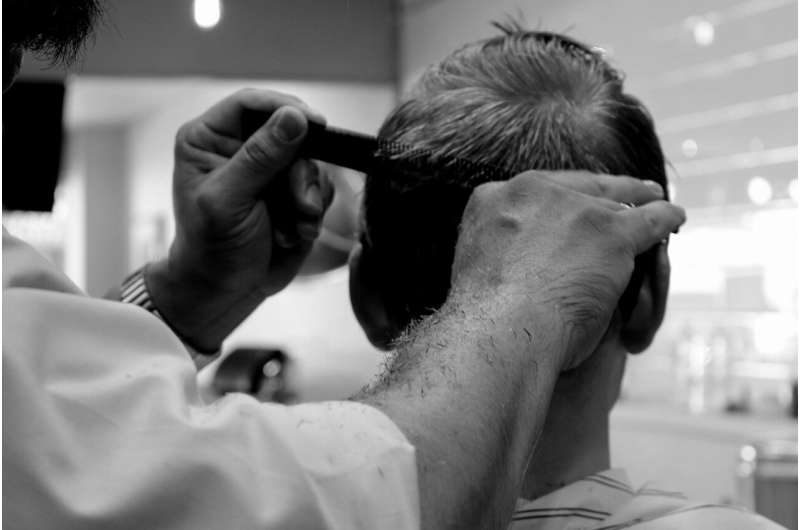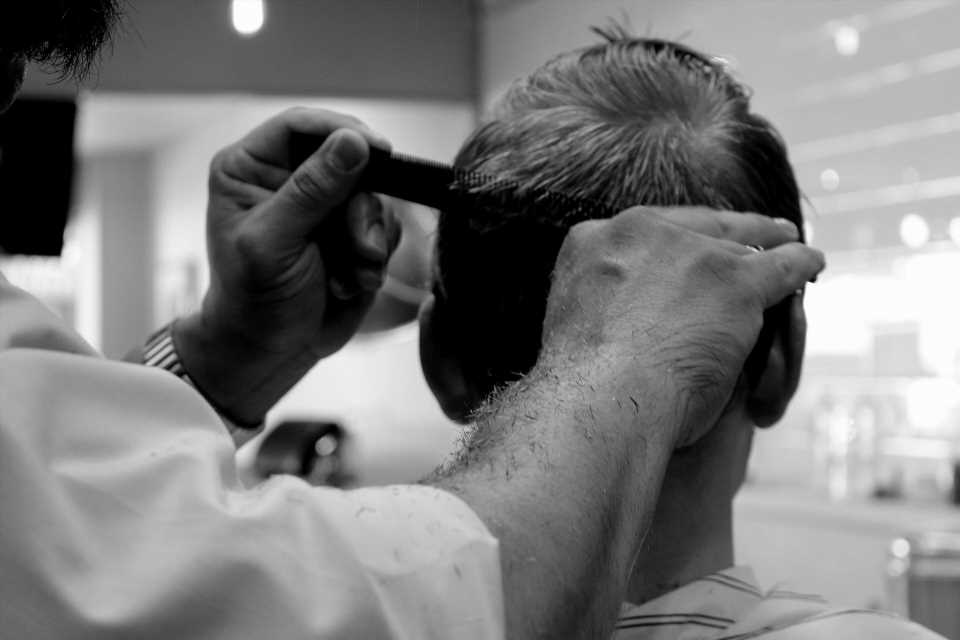
For 35 years, barber Nate Mitchell has watched his clients come in burdened by problems. He’s listened as they unloaded their relationship struggles and other issues, and watched as they often leave feeling better.
“I’m just the barber, but over the last 35, 30 years or so, I feel like I’ve been a therapist,” he said. “Like, the cheapest kind.”
Now, Mitchell has some tools to refer his clients to therapists and other mental health services. A new program from UPMC Health Plan is bringing formalized mental health training to barbers and hairstylists working in minority neighborhoods.
“They are first responders. They are already doing the work,” said Lori Weems, program manager for HAIR (Health Access Initiative for Recovery). “We just wanted to come alongside them and arm them with more information so that they can help their clientele that they are already passionate about.”
The program is focusing on minority neighborhoods in part because while African Americans experience mental health issues at the same rate as the general population, they are less likely to access treatment, said Weems.
The program began in October, with training for 12 barbers and hairstylists, who completed two, four-hour sessions. Four more barbers, including Mitchell, were trained earlier this month, and more are scheduled for sessions in June.
The program has already heard of a success story from one of the first group of barbers, said Weems. The barber was talking to a client experiencing severe anxiety and suggested that they call the 988 crisis line right there from the barber shop. He urged her to stay on the phone even when she wanted to hang up because the crisis line mentioned suicide. Through the phone call, she was able to get connected with a therapist, and has had multiple therapy sessions since.
Mitchell started working as a barber at age 15 and opened up his own shop, Natural Choice, in Oakland at age 22. The shop has been there, in the same location, for 25 years.
Over that time, Mitchell has honed his style of interacting with clients. “As I’ve gotten older, what I’ve done is turned off my voice and turned on my ears even more and just listened and listened and listened,” he said. “Sometimes, people just need to talk.”
Mitchell hasn’t had a chance to apply what he’s learned in his training yet, since it just finished. But he appreciated learning more about the impact of substance abuse through the training sessions, including practical information on how and when to administer Narcan.
“I never would have in a million years thought about that,” he said.
He was also pleased to learn about the places where he could refer clients who are struggling.
“There are and have been resources available that people haven’t been able to use because I didn’t know,” he said. “Now that I know, I can pass those resources. It’s a beautiful thing.”
The HAIR initiative is one of several ways that UPMC Health Plan is trying to make mental health more accessible by bringing it out of hospitals and therapists’ offices and into the community, said Kelly O’Toole, director of clinical care for UPMC Western Behavioral Health. For patients experiencing perinatal mood disorders, for example, they are working to place therapists at UPMC Magee Women’s Hospital and in OB/GYN offices, both for ease of use and because some new mothers are reluctant to visit a psychiatric hospital for care.
The goal, O’Toole said, is to train 25 people in Allegheny County. As the program grows, it may expand beyond county limits.
“We’re trying to put behavioral health therapists in the community,” she said, “where people feel safe.”
(c)2023 the Pittsburgh Post-Gazette
Distributed by Tribune Content Agency, LLC.
Source: Read Full Article
